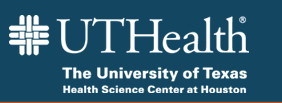Pharmacokinetics, Safety, and Efficacy of Cobicistat-boosted Atazanavir or Cobicistat-boosted Darunavir in HIV-1 Infected, Treatment-Experienced, Virologically Suppressed Pediatric Subjects
| Status: | Recruiting |
|---|---|
| Conditions: | HIV / AIDS, HIV / AIDS |
| Therapuetic Areas: | Immunology / Infectious Diseases |
| Healthy: | No |
| Age Range: | Any - 17 |
| Updated: | 3/16/2019 |
| Start Date: | January 16, 2014 |
| End Date: | December 2024 |
| Contact: | Gilead Study Team |
| Email: | GSUS2160128@gilead.com |
A Phase 2/3, Multicenter, Open-label, Multicohort, Two-Part Study Evaluating Pharmacokinetics (PK), Safety, and Efficacy of Cobicistat-boosted Atazanavir (ATV/co) or Cobicistat-boosted Darunavir (DRV/co), Administered With Background Regimen (BR) in HIV-1 Infected, Treatment-Experienced, Virologically Suppressed Pediatric Subjects
The primary objectives of this study are to evaluate the steady-state pharmacokinetics (PK)
and confirm the dose of cobicistat-boosted atazanavir (ATV/co) or cobicistat-boosted
darunavir (DRV/co) in HIV-1 infected antiretroviral treatment-experienced, virologically
suppressed, pediatric participants between the ages of 3 months to < 18 years of age.
This study will also evaluate the safety, tolerability, and efficacy of ATV/co or DRV/co each
co-administered with a background regimen (BR) through 48 weeks and during the 5 year
long-term treatment.
There will be 2 parts to the study.
- Part A: Participants will be enrolled sequentially by age cohort to evaluate the steady
state PK and confirm dose of ATV/co and DRV/co. Following screening, enrolled
participants will continue their suppressive regimen of either ATV/r or DRV/r once-daily
plus their BR. On Day 1, participants will discontinue ritonavir and initiate once daily
cobicistat (COBI) to be taken with their ATV or DRV plus their BR. All participants
enrolled in Part A will participate in an intensive PK evaluation of COBI and ATV or DRV
on Day 10. Following completion of the intensive PK visit, participants will continue to
receive COBI coadministered with DRV or ATV each with a BR and return for scheduled
study visits.
- Part B: Participants will be enrolled to evaluate the safety, tolerability, and efficacy
of the ATV/co or DRV/co regimen. For all cohorts in Part B, participants will be
screened and initiated sequentially by each age cohort following confirmation of
appropriate COBI exposure and PI exposures from the corresponding age cohort in Part A.
and confirm the dose of cobicistat-boosted atazanavir (ATV/co) or cobicistat-boosted
darunavir (DRV/co) in HIV-1 infected antiretroviral treatment-experienced, virologically
suppressed, pediatric participants between the ages of 3 months to < 18 years of age.
This study will also evaluate the safety, tolerability, and efficacy of ATV/co or DRV/co each
co-administered with a background regimen (BR) through 48 weeks and during the 5 year
long-term treatment.
There will be 2 parts to the study.
- Part A: Participants will be enrolled sequentially by age cohort to evaluate the steady
state PK and confirm dose of ATV/co and DRV/co. Following screening, enrolled
participants will continue their suppressive regimen of either ATV/r or DRV/r once-daily
plus their BR. On Day 1, participants will discontinue ritonavir and initiate once daily
cobicistat (COBI) to be taken with their ATV or DRV plus their BR. All participants
enrolled in Part A will participate in an intensive PK evaluation of COBI and ATV or DRV
on Day 10. Following completion of the intensive PK visit, participants will continue to
receive COBI coadministered with DRV or ATV each with a BR and return for scheduled
study visits.
- Part B: Participants will be enrolled to evaluate the safety, tolerability, and efficacy
of the ATV/co or DRV/co regimen. For all cohorts in Part B, participants will be
screened and initiated sequentially by each age cohort following confirmation of
appropriate COBI exposure and PI exposures from the corresponding age cohort in Part A.
Key Inclusion Criteria:
- HIV-1 infected treatment-experienced, virologically suppressed males and females aged
3 months to < 18 years at the Day 1 visit (according to requirements of enrolling
Cohort)
- Are able to provide written assent if they have the ability to read and write
- Parent or legal guardian able to provide written informed consent prior to any
screening evaluations and willing to comply with study requirements
- Body weight at screening ≥ 25 kg (Cohorts 1 and 2), 15 kg to < 25 kg (Cohort 2), or to
be determined (Cohorts 3 and 4) dependent upon age cohort
- Adequate renal function
- Adequate hematologic function
- Adequate hepatic function defined as
- Hepatic transaminases (AST and ALT) ≤ 5 x upper limit of normal (ULN)
- Total bilirubin ≤ 1.5 mg/dL or a normal direct bilirubin
- Negative serum pregnancy test
- Individuals with evidence of suppressed viremia (< 50 copies/mL) at study entry
- Stable antiretroviral regimen including 2 nucleoside reverse transcriptase inhibitors
and either ritonavir-boosted atazanavir or ritonavir-boosted darunavir once or twice
daily as per product label for a minimum of 3 months prior to the screening visit.
Treatment-experienced pediatric individuals taking DRV/r must have no history of DRV
resistance associated mutations.
- Males and females of childbearing potential must agree to utilize highly effective
contraception methods while on study treatment or agree to abstain from heterosexual
intercourse throughout the study period and for 30 days following the last dose of
study drug
- Documented negative screening for active pulmonary tuberculosis (TB) per local
standard of care within 6 months of a screening visit
- Must be willing and able to comply with all study requirements
- No opportunistic infection within 30 days of study entry (at Day -10)
Key Exclusion Criteria:
- Individuals with CD4+ cell counts at screening of less than 200 cells/mm^3
- An AIDS defining condition with onset within 30 days prior to screening
- Life expectancy of less than 1 year
- An ongoing serious infection requiring systemic antibiotic therapy at the time of
screening.
- Evidence of active pulmonary or extra-pulmonary tuberculosis disease:
- Within 3 months of the screening visit for all individuals 6 months of age or
older
- At anytime for individuals younger than 6 months
- Anticipated requirement for rifamycin treatment while participating in the study.
Note: prophylactic isoniazid therapy for latent TB is allowed.
- Active hepatitis C virus (HCV) infection. Note: individuals with positive HCV antibody
and without detectable HCV RNA are permitted to enroll.
- Positive Hepatitis B surface antigen or other evidence of active hepatitis B virus
(HBV) infection. Note: individuals with positive HBV surface antibody and no evidence
of active HBV infection are permitted to enroll.
- Individuals with clinically significant abnormal ECGs
- Have any serious or active medical or psychiatric illness which, in the opinion of the
investigator, would interfere with treatment, assessment, or compliance with the
protocol.
- Individuals experiencing decompensated cirrhosis
- A history of or ongoing malignancy other than cutaneous Kaposi's sarcoma (KS), basal
cell carcinoma, or resected, non-invasive cutaneous squamous carcinoma.
- Pregnant or lactating females.
- Current alcohol or substance abuse judged by the investigator to potentially interfere
with compliance.
- Have history of significant drug sensitivity or drug allergy.
- Known hypersensitivity to the study drug, the metabolites, or formulation excipients.
- Have previously participated in an investigational trial involving administration of
any investigational agent within 30 days prior to the study dosing.
- Participation in any other clinical trial, including observational studies, without
prior approval from sponsor is prohibited while participating in this trial.
- Individuals receiving ongoing therapy with any medication that is not to be taken with
COBI or a component of the BR
Note: Other protocol defined Inclusion/Exclusion criteria may apply.
We found this trial at
12
sites
550 1st Ave
New York, New York 10016
New York, New York 10016
(212) 263-7300

Principal Investigator: William Borkowsky, MD
New York University School of Medicine NYU School of Medicine has a proud history that...
Click here to add this to my saved trials
7000 Fannin St
Houston, Texas 77030
Houston, Texas 77030
(713) 500-4472

Principal Investigator: Gloria Heresi, MD
University of Texas Health Science Center at Houston The University of Texas Health Science Center...
Click here to add this to my saved trials
262 Danny Thomas Pl
Memphis, Tennessee 38105
Memphis, Tennessee 38105
(901) 495-3300

Principal Investigator: Aditya Gaur, MD
St. Jude Children's Research Hospital St. Jude is unlike any other pediatric treatment and research...
Click here to add this to my saved trials
Click here to add this to my saved trials
13001 E. 17th Pl
Aurora, Colorado 80045
Aurora, Colorado 80045
303-724-5000

Principal Investigator: Elizabeth McFarland, MD
University of Colorado Denver The University of Colorado Denver | Anschutz Medical Campus provides a...
Click here to add this to my saved trials
1 Boston Medical Center Place
Boston, Massachusetts 02118
Boston, Massachusetts 02118
617.638.8000

Boston University Medical Center Boston Medical Center is an extraordinary community of health care providers...
Click here to add this to my saved trials
750 Pi y Margall
Buenos Aires, C1155
Buenos Aires, C1155
Principal Investigator: Diego Cecchini
Click here to add this to my saved trials
Long Beach, California 90806
Principal Investigator: Jagmohan Batra, MD
Click here to add this to my saved trials
Click here to add this to my saved trials
750 East Adams Street
Syracuse, New York 13210
Syracuse, New York 13210
Principal Investigator: Leonard Weiner, MD
Click here to add this to my saved trials
Tampa, Florida 33620
Principal Investigator: Carina Rodriguez, MD
Click here to add this to my saved trials
Washington, District of Columbia 20052
Principal Investigator: Natella Rakhmanina
Click here to add this to my saved trials